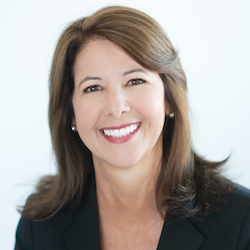
Although COVID-19’s negative effects present “substantial” concerns about the company’s future, Capital Senior Living executives said Thursday that the company’s turnaround strategy creates “a path to long-term value.”
In a press release issued before the company’s first-quarter earnings call, Capital announced that the pandemic’s negative impacts on occupancy, revenues and expenses “raise substantial doubt about the company’s ability to continue as a going concern.” Accounting standards required the disclosure.
During the call, Capital President and CEO Kimberly S. Lody admitted that the coronavirus pandemic’s negative effect on the U.S. economy and the company’s financial results likely will continue for the next several months, but she said the company “delivered improving first-quarter results that highlight progress the company is making to stabilize operations, strengthen our financial foundation and execute our turnaround strategy.” That strategy first was announced in early 2019.
Chief Operating Officer Brandon Ribar said the Dallas-based company invested more than $2 million between March and May to support and acknowledge frontline employees, furnish the appropriate personal protective equipment, and provide a clean and safe environment for employees and residents.
“The company spent more than twice the monthly average on medical, nursing and food supplies,” he said. “We expect that to continue through the second quarter as our communities continue with fully mounted caregiving protocols, in-unit dining and additional safeguards to protect our residents.”
Carey Hendrickson, executive vice president and chief financial officer, said the company was able to offset most of its COVID-19 expenses in April by implementing reduced spending on nonessential supplies, travel and other discretionary items, as well as suspending all non-critical capital expenditures.
Lody also indicated that the company’s board of directors waived its fees and has been deferring compensation since November. She said the board is taking no cash compensation and did not receive any stock award grants this year.
In March, Capital established seven regional supply hubs throughout the country to ensure that its communities had quick access to PPE beyond on-site stock, if needed.
“We are very solid in our supplies on personal protective equipment and sterilization,” Lody said. “We are solidly stocked, so we don’t expect tremendous incremental exposure on those items.
As of April 30, 136 residents — just more than 1% of residents in Capital communities — tested positive for COVID-19. Twelve communities, or less than 10% of the portfolio, were affected.
Restrictions on visitors to its senior living communities resulted in a significant reduction in the numbers of leads and tours across the board. Capital experienced a more than 40% drop in leads and tours and a 55% drop in overall move-ins in April, whereas move-outs remained at consistent levels.
Consolidated occupancy decreased from 79.8% in March to 78.7% in April, and revenue decreased $500,000 in that time. Ribar said he expects it will be another 30 to 60 days before communities begin implementing reopening protocols, but he said he is optimistic that lead and tour levels will continue to improve.
Employee turnover continues to trend favorably in the first first quarter, with a 10% decline year over year, he said.
“Given the national employment landscape and the significant increase in candidate flow our communities experience, we are optimistic this trend will continue and also allow CSL to recruit talent from adjacent industries,” Ribar said, adding that employee labor costs increased 5.9% compared with last year, mostly due to unusually low labor costs in the first quarter of 2019.
Leadership stability continues to be strong, with 91% of community executive directors retained through the first quarter and combined turnover in key leadership roles in its communities decreasing by 8%, Ribar said.
“Our financial performance in the first quarter of 2020 was in line with or slightly better than our expectations, and we made continuing progress in our transformation,” Hendrickson said. “While the current environment is challenging, we’re confident the steps taken over the past 15 months will improve our financial position and create a path to long-term value.”




